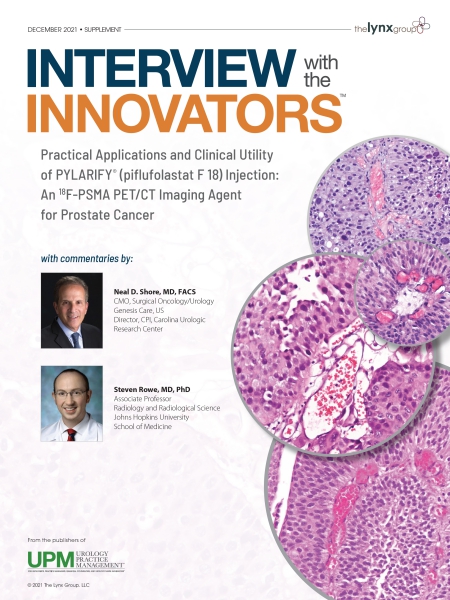Dr Tycel Phillips debates the importance of having more effective and better tolerated treatments for patients who present with recurrent or treatment-refractory follicular lymphoma (FL). Often, these patients have undergone more than 1 or 2 previous lines of therapy and cannot tolerate all types of therapies within the gamut of potential choices. In such patients, it is desirable to have flexibility in the choice of a therapy regimen, for example, one that is chemotherapy-free. Ms Peg Rummel commented that oncology nurses and nurse navigators are paramount in educating the patients and their caregivers around all aspects of therapy, and help alleviate psychological stress, anxiety, and fear of the unknown by explaining to patients with relapsed or refractory FL the various paths along their therapeutic journey. Read More ›
Dr Andrew Zelenetz examines the various criteria used in individual patients with relapsed or treatment-refractory follicular lymphoma and how they help determine the trigger for and timing of initiating antitumor therapies. Dr Tycel Phillips expands on how applying such criteria may best guide the oncologist to choose specific treatment options, such as certain classes of currently available (FDA-approved) drugs in monotherapy or in combination, especially in a community-based clinical setting. Read More ›
Drs Andrew Zelenetz and Tycel Phillips explore the role B-cell signaling plays in the development and progression of follicular lymphoma (FL) and explain how this underlies the pathophysiology of FL. These biological mechanisms underlie the way that FL differs from other B-cell malignancies, and, in many ways, help select candidate molecular targets for the development of novel agents for the management of FL. Read More ›
Dr Tycel Phillips provides an overview of the most common presenting clinical symptoms at the time of initial presentation of patients with follicular lymphoma (FL). Dr Andrew Zelenetz expands on this discussion by delineating the wide range of possible clinical manifestations, from complete lack of symptoms—whereby FL is found incidentally, for example during routine imaging—to severe and debilitating B-symptoms. Ms Peg Rummel emphasizes the role of nurses and nurse navigators, as members of a multidisciplinary clinical team, in directing patients to the appropriate HCP, as well as educate them on the value of tumor tissue biopsy for a definitive diagnosis of FL, which is a prerequisite to the delivery of appropriate therapy. Read More ›
Dr Andrew Zelenetz presents key aspects of the epidemiology of, and currently achieved survivorship in, follicular lymphoma (FL) and compares them with those seen in more commonly diagnosed malignancies treated by the broader group of community-based medical oncologists. Dr Tycel Phillips comments on the paucity of patient features or disease attributes that would help predict poor clinical outcomes, including reduced survival, when FL patients are evaluated at the time of initial diagnosis. Read More ›
Dr Steven Rowe shares insights into the prostate cancer imaging landscape and the logistics involved with different radiotracers, with particular emphasis on PYLARIFY® (piflufolastat F 18). Read More ›
Dr Steven Rowe continues his discussion of PYLARIFY® (piflufolastat F 18) imaging, with a focus on results from the OSPREY clinical trial in pre-prostatectomy patients. Read More ›
Dr Neal Shore emphasizes the importance of accurate staging of prostate cancer and how PYLARIFY® (piflufolastat F 18) can improve treatment decision-making in patients with prostate cancer. Read More ›
Dr Steven Rowe details the molecular characteristics of PYLARIFY® (piflufolastat F 18) and the OSPREY and CONDOR pivotal trials, which led to the FDA approval of PYLARIFY®. Read More ›
A series of interviews was recently conducted with a panel of experts on prostate cancer imaging modalities that included Steven Rowe, MD, PhD, Associate Professor of Radiology and Radiological Science, Johns Hopkins University School of Medicine, Baltimore, MD, and Neal D. Shore, MD, FACS, CMO, Surgical Oncology/Urology Genesis Care, US; Director, CPI, Carolina Urologic Research Center, Myrtle Beach, SC. Read More ›












